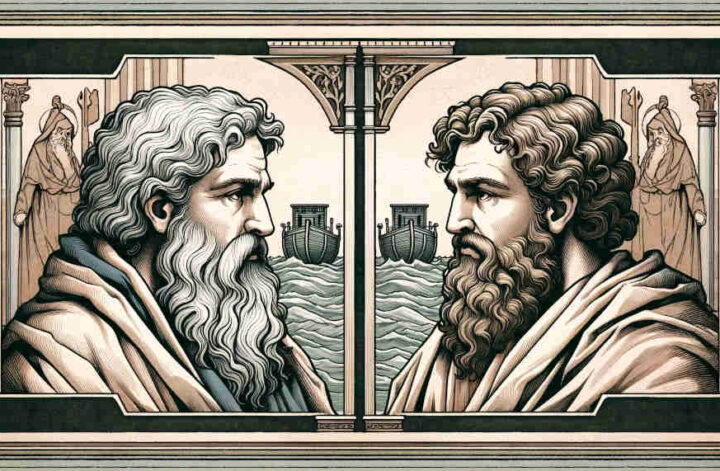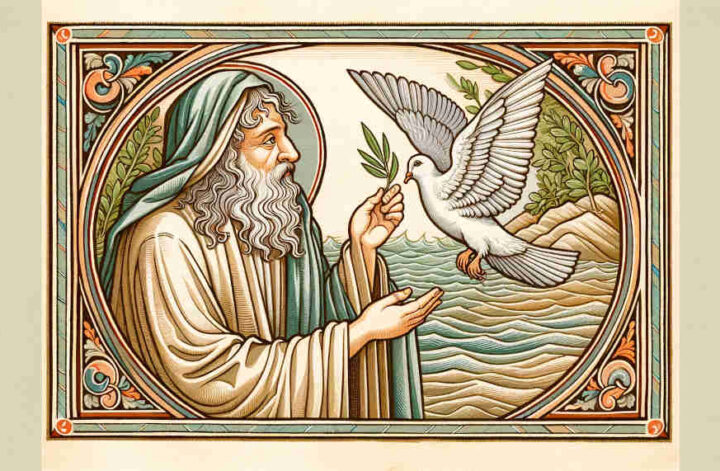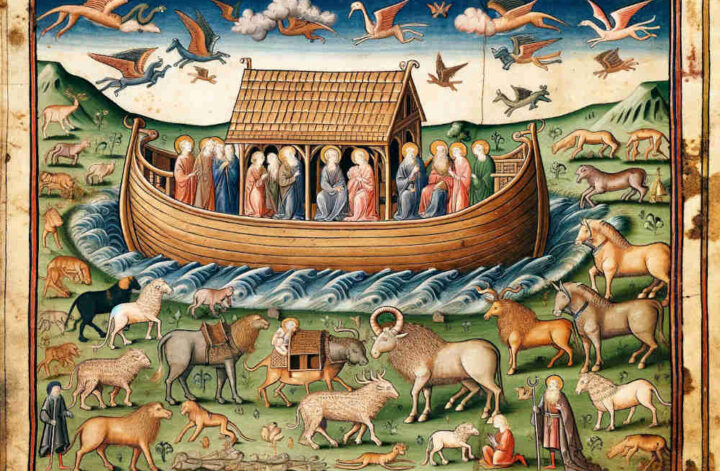Email from a reader: “Dear Rabbi Joshua, In studying the Torah, I’m trying to understand the timeline of biblical figures. Could you clarify who came first, Abraham or Noah? Thanks, Emily Harris”
Dear Emily,
Your question pertains to the chronology of two of the most significant figures in the Torah: Noah and Abraham. Understanding their order in the biblical narrative helps us comprehend the unfolding of early biblical history.
Noah’s Place in the Torah:
Noah is a central figure in the Book of Genesis. He is best known for his righteousness in a time of widespread corruption and for building the ark that saved his family and animal species from the great flood. Noah’s story is found in Genesis chapters 6-9.
Abraham’s Place in the Torah:
Abraham, later known as Abraham, appears later in the Book of Genesis. He is considered the patriarch of the Jewish people and is known for his covenant with God, which marks the beginning of the Jewish nation. Abraham’s story begins in Genesis chapter 11 and continues through chapter 25.
Chronological Order:
According to the Torah, Noah came before Abraham. The narrative of Noah and the flood is an earlier event in the Book of Genesis. After the flood and several generations, the story of Abraham begins. This chronological order is reflected in the Torah’s genealogies:
- Genealogy from Noah to Abraham: Genesis 11 provides a genealogy that links Noah to Abraham. Noah’s son Shem is an ancestor of Abraham, with several generations between them.
- Generations: From Noah to Abraham, there are ten generations, illustrating a significant passage of time between their lives.
Significance in Jewish Tradition:
In Jewish tradition, the sequence of these figures is important for understanding the progression of God’s relationship with humanity. Noah represents a universal covenant with all mankind, while Abraham’s covenant establishes a specific lineage through which the Jewish people emerge.
Emily, in summary, Noah preceded Abraham in the biblical narrative. Noah’s story sets the stage for the eventual emergence of Abraham and the founding of the Jewish people. This chronological order is a key aspect of understanding the development of the covenants and relationships between God and humanity in the Torah.
Warm regards,
Rabbi Joshua


